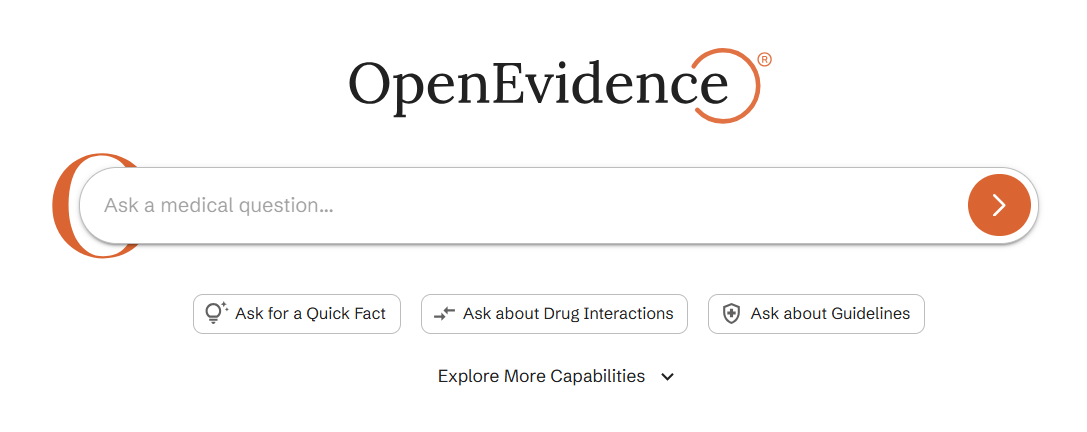
OpenEvidence
AI tools have proliferated in recent years, offering a range of time-saving services. However, questions persist about misinformation, hallucinations, and other inaccuracies that may occur with these tools.
One AI tool that has been receiving attention in the medical community is OpenEvidence , "an AI copilot for doctors that helps them make high-stakes decisions at the point of care." While free to use, questions and follow-ups are limited without an account. Health care providers can use their National Provider Identifier to sign up for an account, and medical students can sign up with proof of medical student access.
OpenEvidence pulls information from medical literature, including the New England Journal of Medicine and JAMA, as well as nationally recognized partners. It can be used to answer clinical questions, investigate drug dosings and interactions, look into treatment alternatives, and much more. One of the more useful aspects is the ability to continue asking refining questions on your topic, and OpenEvidence will often prompt you with additional information.
Like most sources of information, it is best to verify whenever possible. OpenEvidence offers citations with transparent references, allowing users to quickly trace evidence back to the source.
Whether you are new to AI tools, looking to compare results or broaden your toolkit, or just need an answer quickly, OpenEvidence is worth exploring.
One AI tool that has been receiving attention in the medical community is OpenEvidence , "an AI copilot for doctors that helps them make high-stakes decisions at the point of care." While free to use, questions and follow-ups are limited without an account. Health care providers can use their National Provider Identifier to sign up for an account, and medical students can sign up with proof of medical student access.
OpenEvidence pulls information from medical literature, including the New England Journal of Medicine and JAMA, as well as nationally recognized partners. It can be used to answer clinical questions, investigate drug dosings and interactions, look into treatment alternatives, and much more. One of the more useful aspects is the ability to continue asking refining questions on your topic, and OpenEvidence will often prompt you with additional information.
Like most sources of information, it is best to verify whenever possible. OpenEvidence offers citations with transparent references, allowing users to quickly trace evidence back to the source.
Whether you are new to AI tools, looking to compare results or broaden your toolkit, or just need an answer quickly, OpenEvidence is worth exploring.
